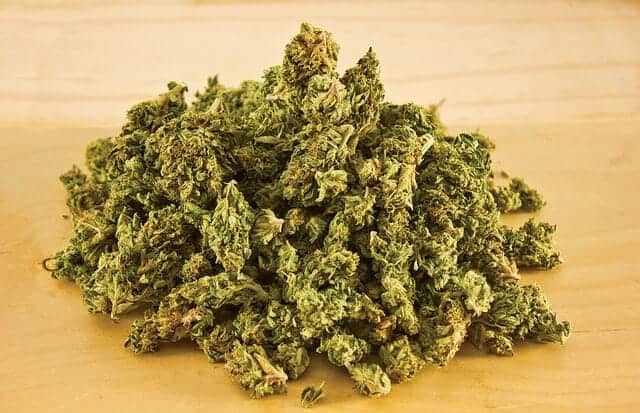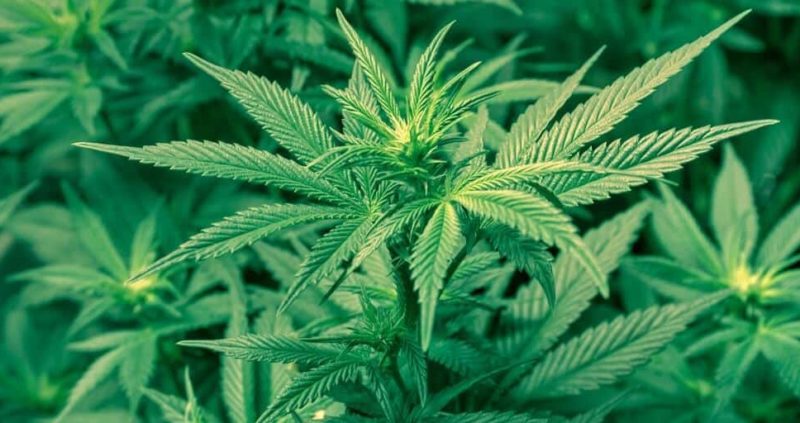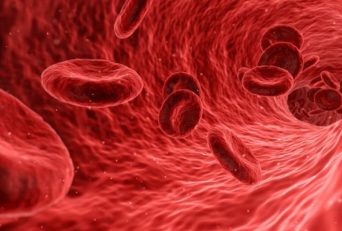12Marijuana is a green or a gray combination of dried and shredded flowers and leaves of the hemp plant called Cannabis sativa. It is popularly known as a weed all over.
The chief active chemical in marijuana is THC. It is called delta-9-tetrahydrocannabinol. There is a wide variety of THC potency among cannabis products.
Marijuana is therefore, a mind-altering drug. It is an illegal drug used in the U.S, but in some countries, it is legalized.
There is a wide variety of THC potency among cannabis products. Marijuana is therefore, a mind-altering drug. It is an illegal drug used in the U.S, but in some countries, it is legalized.
Now, the question arises how long does marijuana stay in your system.
Let’s read more about it here.
Cannabis is mainly used in three forms: marijuana, hash oil and hashish. Marijuana is the least potent of the cannabis products. It is usually smoked or made into an edible product like cookies or brownies.
Most of the people using marijuana do so, to experience a sense of placid euphoria and relaxation. This is often referred to as a “high.” Marijuana is seen to cause a change in your mood and it also affects how you think and perceives the environment.
For instance, your everyday activities such as watching television and listening to music might become altered and even more intense.
You are made more aware of your surroundings and you might feel that you are thinking effortlessly. Hallucinations are common if your dose of marijuana is a lot more than the normal dose.
This effect of being “high” wears off very slowly. Even after it wears off completely after a good sleep or a good meal, marijuana stays in your system.
Precisely, THC stays in your system. It won’t have a mind altering effect on you but, you might feel a little exhausted. Long-term intake of marijuana can lead to addiction for some individual.
The craving for marijuana and its withdrawal symptoms make it hard for long-term users to stop abusing the drug. People who are trying to quit are seen to be irritated all the time, sleepy, and anxious. Sometimes, it also results in increased aggression.
Table of Contents
Factors Influencing Accumulation And Detection

There are many major factors which are to be taken in the count while analyzing the accumulation and toxicity level within the human body.
1. Metabolism
Metabolism plays a crucial role in determining the rate of efflux of toxic effluents from the body.
In a healthy individual if the metabolic rate is high then chances of accumulation of toxicants is less thus if weed consumer is having a healthy diet and body shows a proper rate of efflux of effluents and toxicants of weed then chances of accumulation and detection are less.
2. Frequency
How often the consumer is ingesting the weed is also one of the significant parameters to determine the rate of accumulation and detection.
For one time user, the chances of detection are most probably after several hours of consumption while chances of accumulation are almost nil. In frequent users the chances of detection can be up to several months and accumulation can be for several weeks.
3. Lifestyle
Lifestyle of an individual has a major role in determining the degree of accumulation for all those individuals who consume a balanced diet and perform the routine exercise, the chances of detection and accumulation of toxic effluents are lessened but still, it does not confirm the absence to weed toxicants within their system.
4. Mode Of Ingestion
If the mode of ingestion is via smoke then accumulation levels can be up to 40%. If the intake is oral then chances of accumulation are increased up to 60% while if the intake is in ultra purified form via syringes then accumulation levels can increase up to 90%.
How Long Does Marijuana Stay In Your System?
1. Presence Of Marijuana In Urine
The urine test is the most common method of detecting use of marijuana. The frequency of consumption is probably one of the most influencing factors on the levels of THC metabolites in your body.
If you only smoke marijuana occasionally, you have nothing to worry about. The cannabinoids do not remain in your system any longer than 1-3 days. Within a week or 10 days, your body will be free of all traces of marijuana. For better results, you can exercise daily.
Frequent users will show a positive result for a week to 10 days at least. But they are not likely to show any signs of the presence cannabinoid after this period. Remember this holds true only with urine tests.
The heavy users of marijuana should be worried about the presence of THC metabolites in their body. Traces of cannabinoids can be detectable for a month or even a longer time, after you smoke marijuana the last time. In some cases, the traces can be found even up to 3 months after the last use.
2. Presence Of Marijuana In Your Blood
Contrary to our common belief, urine tests are actually more effective for detecting marijuana than a blood test. The presence of THC metabolites is hard to detect in your blood, because THC concentration rapidly decreases after consumption, die too fast absorption into your tissues.
In chronic users, fat or the body tissues are already saturated with THC, so the levels in their blood remain high for many days. This is because the THC molecules leech into your bloodstream as your liver keeps metabolizing them.
The presence of marijuana can be detected for a maximum of 3 months in this case. But, this may differ depending upon the percentage of body fat.
3. Presence Of Marijuana In Saliva
A swab test is done to detect the presence of marijuana in your saliva. This can either work in your favor, or against you.
This is a legitimate test, but it just a less reliable test. For less frequent users it can detect up to 2-3 hours of consumption of marijuana. For more frequent users this test can be used to detect toxicants up to 10 days.
Swab tests do not detect the THC metabolite in your saliva. Unlike blood, hair and urine tests, there is no screening for the inactive THC metabolite in your body. Swab tests look for the THC itself, and a very small amount of THC is excreted in your saliva.
4. Presence Of Marijuana In Your Hair
The hair test for detecting marijuana in your system was developed to identify long-term use. The hair follicle drug test is able to detect the use of marijuana beginning from 7-10 days after the first use.
To do this test, laboratories use mass spectroscopy and other related methods. This test detects the presence of the non-psychoactive by-product of THC, that is THC-COOH. This test is mainly used to analyze the past instances of frequent consumption.
Does Marijuana Stay In Your System Even After You Stop Intake?
Whether you are a long-term user or an occasional user, the effects of smoking marijuana can last much longer than your high.
The high kicks in within a few seconds and lasts for an hour or two. But, the chemical components making marijuana potent, remains in your system for much longer.
Cannabinoids in marijuana is not water soluble, but they are fat soluble. This means that THC remains in your body for a very long time.
With drugs that are water soluble, its traces can be removed within a few days by increasing your fluid intake and urination. But this cannot be done for THC. THC, which is the active component of marijuana, remains in your fat cells.
During a drug screening test, your body is checked for the presence of Carboxy-THC. Carboxy-THC is a metabolite resulting from the breakdown of marijuana. The duration for which marijuana use can be detected depends on your BMI, the percentage of body fat, and stress levels and your diet to some extent.
The duration for which marijuana use can be detected depends on your BMI, the percentage of body fat, and stress levels and your diet to some extent.
Stopping the intake of marijuana will not help you remove THC from your body immediately.
In fact, THC levels reach their peak, days after you stop using marijuana. Unlike alcohol, there is no say in how fast the THC in your system will be metabolized or for how long the traces would remain in your blood or urine. Sometimes, marijuana can be detected even after 100 days of consumption.
Side Effects Of Marijuana
Most of the marijuana users enjoy the drug’s ability to bring about a sense of euphoria. But this obviously comes with side effects.
Researches show that using marijuana can cause various short and long-term effects in you. Almost everybody is familiar one side effect. It is the intense desire for food commonly called, ‘munchies’. But, there is also other lesser known after effects.
Here are a few common side effects of using marijuana:
1. Dry Mouth
Most people using marijuana are familiar with the effect with this side effect. It is generally referred to as ‘cottonmouth’. You might experience an uncomfortable feeling of the lack of saliva production in your mouth.
A survey has confirmed that 79% of marijuana users experience dry mouth. In many cases, you generally expect to see the effect of dry mouth in a recreational user.
It is because they are consuming cannabis which is more than an average medical user. You can help minimize this effect by using a chewing gum or by eating food. This stimulates your salivary glands to produce saliva.
2. Dizziness
If you stand up after smoking marijuana, you might feel a mild dizziness. 60% of marijuana users experience moderate to severe dizziness when they stand after smoking a high-potency marijuana. This happens because there is a decrease in your blood pressure level.
A sudden THC rush in your body causes your blood pressure to rise. In order to compensate for this, your nervous system kicks into overdrive.
This results in an increased your heart rate and it tightens up your blood vessels for maintaining your BP. However, if you are a frequent user, you might develop a tolerance to this effect.
3. Increased Appetite
Shortly after smoking, you might experience a sudden increase in appetite. It is an overwhelming desire to eat. It will often lead you to raid your fridge! This effect is popularly known as “munchies”. Marijuana or rather, the THC obstructs the part of your hypothalamus.
The hypothalamus controls the feeling satiety or being full. In other words, marijuana tricks your brain into thinking that you are starving, even if you are full.
It is found that marijuana plays with your cannabinoid receptors in the olfactory bulb. This makes food smell and tastes more intense and it also affects how much we eat at a go.
While some feel that this is a negative effect, it is actually a benefit to the ones who use medicinal marijuana for cancer. There is a loss of appetite as an after effect of chemotherapy. Marijuana helps chemo receivers in eating.
4. Memory Impairment
It has been found that marijuana users might experience short-term memory loss. But, it does not affect the recalling of existing memories.
This essentially means it is going to be harder to form new memories while you are high. It is also going to forget what happened when you were getting high or already high.
Young people who use the drug may be most at risk. But, this also has a positive ring to it. THC is helped in treating anxiety disorders like PTSD, that is, post-traumatic stress disorder.
This happens because the endocannabinoid system is directly concerned with the extinction of negative memories from your head. When THC acts on the endocannabinoid system, it facilitates extinction.
5. Lack Of Motivation
People who are against the use of recreational marijuana point to one side effect of marijuana. The users might lack a sense of enthusiasm at work or in school. This might happen because cannabis users have lower levels of dopamine in their body.
Dopamine is a chemical in your brain that is directly responsible for motivation or the feeling of being happy. Anti0depressants help to bring about a rise in the level of dopamine in your body.
However, some claim that there is no such condition that says a person who fits this description could be showing signs of chronic intoxication or just depression.
6. Depression
Although it has been confirmed that marijuana helps people combat depression, sometimes it might work the opposite way. Marijuana can cause depression predominantly among young people.
A study has shown that frequent marijuana use among teenage girls can lead to depression in later years. But, we must consider that there are different kinds of depression and marijuana may affect each kind differently.
The variant named serotonin gene (5-HTT) is responsible for an increased vulnerability to developing depression.
The depression symptoms set in also depending upon your socioeconomic background, your childhood, and your experiences over the years. So, this depression is not solely due to the use of marijuana.
7. Anxiety
Yet another mental side effect of marijuana is the paranoia that follows after smoking. This is a documented evidence in medical literature; that THC can affect users by bringing about an anxiety or an elevating anxiety. But it is seen that paranoia is not a direct result of THC.
Instead, it is a by-product of the other effects of marijuana, like depression. MRI scans have shown that cannabis users had a significantly blunted dopamine response, as compared to ones who had never taken the drug.
But on the contrary, marijuana can also be used a self-medication to cure anxiety. But after the THC wears off the condition worsens in some.
8. Addiction
Like every other drug, there is a risk of addiction associated with marijuana. When you stop using cannabis, the cannabinoid receptors adjust back to normal levels. This leads to various psychological and physical withdrawal symptoms.
Depending on how much and how often you have smoked, the symptoms range from being intense to mild. If you are a daily smoker, you will experience the most number of symptoms. But otherwise, the withdrawal symptoms are of moderate intensity.
Some of the common withdrawal symptoms are:
- Craving for Marijuana
- Mood Swings
- Sleep Disruption or Insomnia
- Headaches and in some cases, a recurring migraine.
- Appetite change
- Weight loss
- Weight gain
- Digestion problems
- Cramps or nausea after eating.
9. Lung Problems
Like cigarettes, smoking marijuana is bound to have detrimental effects on your respiratory system. If you smoke marijuana along with tobacco or any other agent, you might suffer from respiratory problems, like bronchitis, coughing and wheezing. Any ashen plant particles in your lungs are not good.
You can use a vaporizer (vape), instead of smoking marijuana. Vapes use minimum heat to activate cannabinoids in the flower or wax. You can avoid the itchy and inflame burning sensation that is associated with roasting marijuana.
Home Remedies To Flush Marijuana From System
The results of a drug test, directly and indirectly, affect your life. A positive drug test result is considered as a serious felony. It jeopardizes your personal life and disturbs your professional life. Failure to clear this test can lead to a serious damage to your reputation as well.
The THC metabolites are stored in your fat cells mainly. Some of it is also stored under your hair follicles. There are several home remedies that can help you.
If you want to flush out the traces of cannabinoid in your system and pass a drug test, you can consider the following:
1. Water
You can hyper saturate your body in order to dilute the THC metabolites below the detectable level. But, increasing your intake of water for a few days before the drug test will not work. In that case, you must consume no less than one gallon or more water in a span of a few hours.
But, this is not humanly possible. It will only help you dilute your urine temporarily. It might also make your urine a little less yellow. Remember not to over drink water, it might result in water intoxication. Sometimes, it even causes death.
2. Diuretics
The frequent use of diuretics likes, iced tea, fruit juices, apple cider vinegar, coffee, Midol, Pepsi, is going to result in increased urination. The increased urination will speed up your body metabolism in return.
Eventually, your body fats will burn rapidly. Drink a gallon or more of the above-mentioned diuretics, to cleanse your system efficiently.
Fruits such as apples, oats, carrots, berries, lettuce, cabbage, watermelons, tomatoes and grapes act as natural diuretics. These fruits have a high water content.
Some diuretic herbs such as juniper berry and dandelion root make you urinate very frequently. Caffeinated diuretics can also have an adverse effect. So, you must use non-caffeinated beverages for a safer result.
3. B-Complex Multivitamin
Drinking water along with Diuretics help take away the yellow color in urine, which normally raise suspicions. This problem can be overcome by consuming 100 mg of B-complex multivitamin 2 hours before a test. B2 or B12 vitamins restore the yellow color in urine.
4. Exercise
Exercise helps to decrease your body weight and the fats in your body. As a result, THC metabolites that are stored in your fat cells also drops off.
However, if you have very little time to prepare for the drug test, this remedy is not going to work. You can’t reduce weight overnight or even in a few days. In order to pass the drug test, you must work out on a daily basis.
5. Intake A Lots Of Fiber
Fiber helps to forward the fat-soluble THC metabolites to your colon and not to your bladder. Additionally, they also help to boost up the metabolism of your body. A majority of the THC metabolite will get excreted out from your stool if you boost the intake of fiber-rich food in your diet.
6. Herbs
Herbs such as chaparral poke root, red clover and burdock root act as natural blood cleansers. You can prepare a tea using these dried herbs. Drink this tea several times in a day to pass the blood test to check for drugs.
7. Rosemary Shampoo
Heat dried rosemary leaves along with Grapeseed oil in a kettle for 3 hours at least. Let the leaves slowly infuse with the oil. Remember not overheat the oil. Carefully strain this mixture in a clean container and allow it to cool down.
The next day, massage your scalp with this mixture and then rinse thoroughly. Repeat this procedure, as many times as you want. Rosmarinic and caffeine acids present in rosemary helps you to detoxify the strands successfully.
8. Vinegar
Firstly, rinse your hair strands with vinegar. Then, rinse off with salicylic acid to remove any toxins and dirt left. Finally, wash off with a detergent.
But, salicylic acid does not infiltrate the cuticle and the cortex of your hair to eliminate the THC metabolites. Thus, this remedy works efficiently only for light marijuana users.
9. Sea Salt
Blend 2 cups of bicarbonate soda, a cup of sea salt and apple cider vinegar each. Use this mixture to steep up your hair. After applying this mixture and leaving it for 5-7 minutes, rinse with shampoo. Repeat this several times.
10. Baking Soda
Mix a little baking soda and a few drops of water in your palm to prepare a paste. Massage the paste nicely on your scalp and hair. Then, dilute a cup of apple cider vinegar in lukewarm water to rinse your hair. Do not forget to massage your scalp. This remedy is sure to wash out any THC metabolites on the cuticles of your hair.
11. Shave To Save Yourself
You cannot possibly tamper with a hair test, as they are chopped off on spot. The best way of avoiding this test is to shave your body and head before the hair test. This way you can opt for any other test to determine the presence of a drug.
Final Talk
Smoking marijuana is not that harmful. Although the science is too new to prove anything for certain. But, if your job requires you to stay clean it is safe not to. It is because removal of THC metabolite is not that easy.
You cannot become clean in just a few days. If you decide to quit smoking marijuana, there are chances that you will experience withdrawal symptoms. The withdrawal symptoms depend on the quantity you consume and the frequency of consumption.
If you decide to smoke marijuana occasionally, you must make yourself aware of the various health problems associated. But like we saw, marijuana is not that harmful. There are many benefits of marijuana.
Marijuana has also used medicines in many countries. It helps us to curb cavernous cells from spreading and helps to stop the development of the enzyme causing Alzheimer disease.
There are many benefits of marijuana. Marijuana has also used medicines in many countries. It helps us to curb cavernous cells from spreading and helps to stop the development of the enzyme causing Alzheimer disease.
It may help you to reverse the carcinogenic effects of tobacco and improve your lung health. But overdosing on this mind-altering drug is not good. It might cause some permanent damage to your brain and result in memory impairment.
Also, Read
How To Get Meth Out Of Your System?
Adderall Withdrawal Symptoms, Side Effects & How To Cope With It
How Long Does Hydrocodone Stay In Your System?
How Long Does Vyvanse Stay In Your System?





